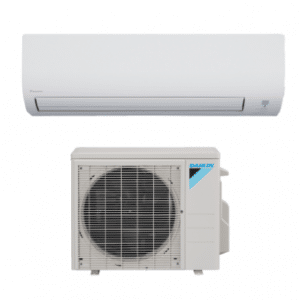
While summers in Connecticut may be relatively mild, they can soon turn miserable if your air conditioner stops working. Your HVAC system is probably not something that you think about on a regular basis until it breaks, and you are left overheated and miserable. If you do not properly maintain your HVAC system, it can leave you without cool air when you need it most.
Serious HVAC problems require the expertise of a professional, but you can prevent your system from overheating if you take precautions. Your HVAC system can overheat for a variety of reasons, but maintaining your system can help it last for years. Keep reading for five tips to keep your HVAC system from overheating.
Give it space
Your air conditioner needs proper airflow to continue operating. In order to maintain airflow, you should keep two or three feet of room around the outdoor condensing unit. If the airflow is too restricted, your unit is more likely to overheat.
It is also important to conduct regular checks around your outdoor unit. Sometimes debris or other items can block the airflow without anyone realizing it until your HVAC system breaks down. You would be surprised by what could block the airflow of your HVAC. Weeds in the spring, piles of leaves, or debris dropped off by storms can all cause a malfunction in your air conditioning.
Keep the thermostat programmed
The thermostat of your HVAC system will keep your air conditioner from working too hard. If you program your thermostat, you can regulate the temperature in your home without overworking your unit. For example, letting your air conditioner run at a low temperature even when you are not home can cause your HVAC to overheat.
You can make this process much easier and extend the life of your HVAC system by installing a programmable thermostat. Set your temperature to meet your needs, and give your system a break when you do not need it to work so hard. By running your air conditioner less often, you can extend its life.
Don’t forget the air filter
Changing air filters is something we all put off. The task can seem like an unnecessary hassle until your air conditioner breaks, leaving you stuck in the middle of summer with no cold air. Instead, set a reminder to change your air filter each month and actually follow through with it. A dirty air filter blocks the airflow of your HVAC system and can lead to a shutdown of your system.
Keep up with your inspections
An annual HVAC inspection may seem like another unnecessary task on your to do list, but it can actually prevent costly repairs later on. You can schedule two inspections, one in the spring and one in the fall, to ensure your air conditioner and heater are ready when the weather changes.
A technician will check all components of your HVAC system to make sure everything is functioning properly. These checks include the condenser coils, fan blades, and refrigerant. By checking your system on a regular basis, you can identify potential issues before they become major problems. Your technician will alert you to any potential problems and offer solutions on the spot.
Know the lifespan of your HVAC
Unfortunately, HVAC systems cannot last forever. It is important to keep the age of your air conditioner in mind when addressing problems and scheduling routine maintenance. HVAC systems last an average of 10 to 15 years before being replaced. If your system is older, you may find that problems occur more frequently.
Trust your HVAC system to the professionals
Schedule your annual inspection for your HVAC system in Connecticut with the qualified team at Highwood Mechanical Contractors. For more than 25 years, Highwood Mechanical has served the Fairfield HVAC, Middlesex HVAC, New Haven HVAC, Hamden, and Hartford areas. Experienced technicians can keep your HVAC system from overheating and ensure you stay cool all summer long.
